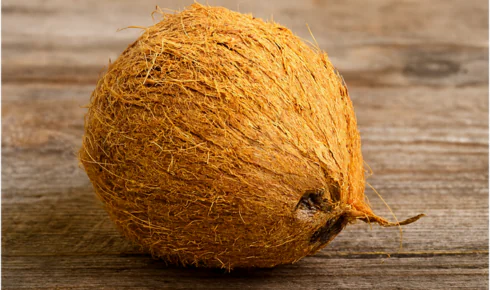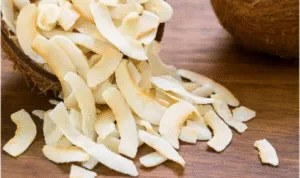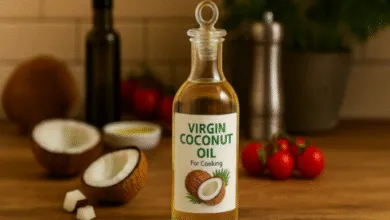Husk Coconut: Nature’s Versatile Byproduct

Key Takeaways:
- Understanding the many uses of coconut husk, a sustainable byproduct of coconut processing.
- The benefits of utilizing husk coconut for various industries like farming, construction, and health.
- Exploring eco-friendly and innovative products made from coconut husk, such as coconut chips.
The humble coconut husk, often overlooked, holds a wealth of potential. This tough outer layer of the coconut has been used for centuries in various traditional applications, but today, it is gaining recognition for its sustainability and versatility. From eco-friendly products to innovative agricultural solutions, husk coconut has emerged as a key material that supports both environmental conservation and industry innovation. In this article, we will explore the many uses of husk coconut, along with its eco-friendly products like coconut chips.
The Many Uses of Husk Coconut
Husk Coconut, also known as coir, is a natural fiber extracted from the outer shell of a coconut. Traditionally, coconut husk has been used in a variety of products, from mats and ropes to brushes and brooms. However, as sustainability continues to become more important in today’s world, the versatility of coconut husk is being appreciated for new applications. One of the most exciting uses is in the manufacturing of eco-friendly products like coconut chips, which are not only delicious but also a great way to reduce waste.
Coconut husk fibers have exceptional durability, which makes them perfect for products that require resilience, such as mattresses, car seats, and garden supplies. Additionally, they are an excellent alternative to synthetic materials, providing a biodegradable option that helps reduce our reliance on plastic. As more industries explore eco-friendly solutions, coconut husk has emerged as a top contender for replacing harmful materials with sustainable, natural alternatives.
How Coconut Husk is Processed into Products
The process of transforming coconut husk into useful products begins with extracting the fibers from the outer shell. Afterward, these fibers are processed and cleaned to be used in various applications. One popular and innovative product made from coconut husk is coconut chips. These chips are created by cutting the husk into thin, small pieces, which are then dried and seasoned for consumption.
Aside from coconut chips, husk coconut fibers are used to produce a variety of products, including coir mattresses, natural brushes, and even eco-friendly packaging materials. The conversion process is relatively simple, but the end result is a highly sustainable product that can be used in many industries. The versatility of coconut husk makes it a valuable material for companies looking to move toward greener practices.
The Health Benefits of Coconut Chips

In addition to its environmental and industrial applications, coconut husk has found its way into the food industry through the creation of coconut chips. These chips are made from the inner layers of the husk, offering a unique flavor and texture that has been embraced by health-conscious individuals worldwide. Coconut chips are not only tasty but also packed with essential nutrients, including fiber, healthy fats, and minerals like potassium and magnesium.
Consuming Coconut Chips can contribute to heart health by providing good fats that help balance cholesterol levels. Moreover, they are an excellent source of energy, making them a great snack for people on the go. The natural, high-fiber content of coconut chips also aids in digestion and supports weight management, making them an attractive alternative to conventional processed snacks.
Eco-Friendly Applications of Husk Coconut
As industries continue to seek sustainable alternatives, husk coconut has shown tremendous promise in various sectors. In construction, coconut husk fibers are being used to create eco-friendly insulation and building materials. These materials are not only biodegradable but also highly efficient in terms of thermal and sound insulation.
In agriculture, husk coconut is also finding its place as a natural soil enhancer. Coir, the fiber from the husk, is used as a soil amendment and growing medium. It is an excellent alternative to peat moss, offering a sustainable solution that does not contribute to environmental degradation. Additionally, coconut husk is used in hydroponics systems, where it helps maintain moisture levels and supports plant growth without the need for soil.
Why Husk Coconut is a Sustainable Option
One of the main reasons coconut husk is gaining popularity is its sustainability. Unlike synthetic materials, which can take hundreds of years to break down, products made from coconut husk are biodegradable and eco-friendly. Using husk coconut in various industries reduces the demand for plastic, helps conserve forests, and lowers the carbon footprint of manufacturing processes.
Furthermore, coconut husk is an abundant byproduct of coconut processing, meaning it is readily available and does not require the harvesting of additional natural resources. By using coconut husk in place of other materials, industries can create more sustainable products while helping to reduce waste and promote environmental conservation.
Conclusion
Coconut husk, once considered waste, is now recognized as a valuable resource with endless possibilities. From eco-friendly building materials to health-boosting coconut chips, this natural byproduct is transforming industries and improving the way we approach sustainability. By exploring the many uses of husk coconut, we can contribute to a greener, more sustainable future while reaping the benefits of its versatility and durability.
As consumers become more environmentally conscious, the demand for sustainable products like coconut chips will continue to grow. Embracing the full potential of coconut husk not only reduces waste but also promotes a healthier, more sustainable world. Whether you’re enjoying coconut chips as a nutritious snack or utilizing coconut husk products in construction or agriculture, it’s clear that this humble byproduct has a significant role to play in shaping a greener future.
Please include our team’s contact: WhatsApp (+62)812 1233 3590 (Ms.Maria)
Email [email protected] Thank you!




